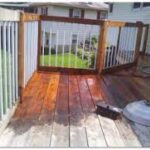One frequently disregarded factor in increasing the energy efficiency of your house is the insulation on your siding and roof. Although many homeowners prioritize replacing outdated appliances or caulking windows and doors, the value of having a well-insulated roof and siding cannot be emphasized. We’ll go into how appropriate roof siding insulation can improve the comfort, energy savings, and efficiency of your house in this blog post.
Recognizing the Value of Insulation for Siding and Roofs
Let’s first examine why appropriate insulation is important before talking about its advantages. Insulation serves as a partition between your home’s interior and exterior. It assists in controlling the temperature so that your house remains cool in the summer and warm in the winter. Your house is more susceptible to heat gain in the summer and heat loss in the winter when it is not properly insulated. This may cause a number of issues, such as:
1. Higher Energy Bills: Insufficient insulation may force your air conditioning and heating units to operate longer hours in order to keep the temperature at a comfortable level. This results in increased energy costs.
2. Temperature Variations: Your home may experience uneven temperatures in different rooms due to inadequate insulation. Your living spaces may not be as comfortable if certain rooms are too hot or too cold.
3. Problems with Condensation and Moisture: Inadequate insulation can cause condensation in your home, which can cause structural damage and the growth of mold and mildew.
4. Environmental Impact: Higher greenhouse gas emissions from inadequate insulation lead to increased energy consumption, which has a detrimental effect on the environment.
The Advantages of Adequate Insulation for Siding and Roofs
Now that the significance of insulation has been established, let’s examine the particular advantages it offers for the comfort and efficiency of your home:
1. Enhanced Energy Effectiveness
An effective thermal barrier that keeps heat from escaping in the winter and from entering in the summer is created by properly insulated siding and roof. As a result, you can expect your heating and cooling systems to function more effectively, resulting in lower energy usage and utility bills.
2. Increased Coziness
A more comfortable home is one that is well-insulated. Less drafts and temperature swings will result in a comfortable and consistent interior climate all year long. No more perspiring all summer long or shivering in the winter!
3. Diminished Noise
In addition to controlling temperature, insulation has acoustical advantages. Your home can become quieter and more serene by having enough insulation on the siding and roof.
4. Control of Moisture
Insulation lowers condensation on walls and ceilings, which helps regulate the amount of moisture in your house. This can stop the development of mold and mildew, which can be detrimental to the structural integrity of your house as well as your health.
5. A Rise in the Value of Real Estate
Prospective buyers find a home that is properly insulated and energy-efficient more appealing. It can improve your property’s future marketability and raise its resale value.
Types of Insulation for Siding and Roofs
Understanding the different types of insulation that are frequently used for siding and roofs is crucial if you want to reap the benefits outlined above:
1. Fiberglass Insulation: Known for its affordability and effectiveness, fiberglass insulation is one of the most popular forms of insulation. Fiberglass insulation can be put between wall studs and in the attic; it comes in rolls or batts. It is a great option for enhancing the insulation of walls and roofs.
2. Cellulose Insulation: An environmentally friendly alternative, cellulose insulation is made from recycled paper and treated to withstand fire. It has good thermal performance and can be blown into walls and attics.
3. Spray Foam Insulation: Spray foam insulation has superior air-sealing qualities and a high R-value (thermal resistance). It can be sprayed directly on the roof deck’s underside or applied to ceilings and walls.
4. Radiant Barrier or Reflective Insulation: In hotter climates, radiant heat is reflected from homes using this type of insulation. To lessen heat gain, it is frequently installed in the attic.
5. Rigid Foam Insulation: Used for siding and roofing, rigid foam boards have high R-values. They can be mounted on the outside of the house and offer a continuous thermal barrier.
Your climate, your spending limit, and your unique insulation requirements all play a role in the type of insulation you choose. The ideal insulation option for your house can be found by speaking with a qualified insulation contractor.
Insulation for Roofs
As one of the main places where heat gain and loss occur, let’s take a closer look at the significance of roof insulation. There are numerous approaches to properly insulate your roof:
1. Insulating Your Attic: One of the best methods to increase your home’s energy efficiency is to insulate your attic. In the winter, it keeps heat from escaping through the roof, and in the summer, it keeps your house cooler. Rigid foam, fiberglass batts, and blown-in insulation are common attic insulation techniques.
2. Roof Deck Insulation: Insulating the roof deck itself is essential for houses with sloped roofs or cathedral ceilings. Spray foam insulation that is directly applied to the roof deck’s underside can be used for this. It forms a barrier that is both thermally efficient and airtight.
3. Ventilation: To avoid moisture buildup and preserve a healthy attic environment, proper roof ventilation is crucial. Attic fans, soffit vents, and ridge vents can all aid in ensuring that there is enough airflow in the attic.
4. Reflective Roof Coatings: Using reflective roof coatings helps lower the amount of heat that the roof absorbs in hot weather. Consequently, this keeps your house colder and saves money on air conditioning.
Insulation for Siding
Maintaining a well-insulated home also requires good siding insulation. Here’s how to make sure your siding enhances the energy efficiency of your house:
1. Exterior Insulation: To enhance thermal performance and lessen thermal bridging—the process by which heat escapes through framing members—install rigid foam insulation boards on the outside of your home before installing siding.
2. House Wrap: Underneath your siding, a house wrap is an installed moisture-resistant barrier. Its main function is to stop water intrusion, but it can also increase energy efficiency and offer some insulation.
3. Insulated Siding: Some siding materials have insulation built right in, which can improve your home’s energy efficiency. For extra thermal resistance, insulated vinyl siding, for instance, has a layer of foam insulation.
The Significance of Expert Installation
While it’s critical to comprehend the function of siding and roof insulation, it’s also critical to emphasize the value of expert installation. When installed correctly, insulation operates at its peak efficiency and optimizes the previously mentioned advantages. This is why having a professional installation is important:
1. Expertise: Insulation contractors are equipped with the know-how and experience to choose the best insulation type and install it properly for your house.
2. Air Sealing: To stop drafts and heat loss, effective insulation needs to be properly sealed. Experts are skilled in caulking cracks, gaps, and other possible air leaks.
3. Safety: Installing insulation may require handling materials that, in the wrong hands, could be dangerous. Professionals are equipped with the safety gear and trained to work in a safe manner.
4. Efficiency: Experts can install insulation precisely and quickly, saving you time and guaranteeing that it works as intended.
For all your insulation needs and to elevate your home with siding installation, contact us for professional service you can rely on.
In Summary
In conclusion, adequate insulation for your roof and siding is essential for improving the effectiveness, comfort, and energy savings of your house. Insulation functions as a barrier to control temperature, save energy, and stop moisture problems. Selecting the appropriate insulation type and ensuring professional installation are crucial, whether you’re looking to upgrade your current insulation or are thinking about installing insulation for a new home. You may enjoy a more comfortable living environment and help create a future that is more ecologically friendly and sustainable by making an insulation investmen. For expert insulation services, please visit the Pinnacle Exteriors’ website and explore our professional offerings.




